Space
Sign up for our newsletter
We summarize the week's scientific breakthroughs every Thursday.
-
 Planetary Science
Planetary ScienceMountains on Pluto are a winter wonderland of methane snow
On Pluto, methane snow blankets mountain tops.
-
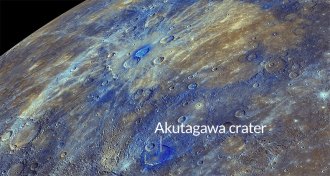 Planetary Science
Planetary ScienceMercury’s dark secret revealed
Graphite from Mercury’s primordial crust might be responsible for making the innermost planet darker than the moon.
-
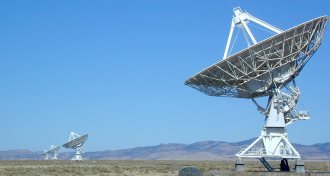 Astronomy
AstronomyA fast radio burst’s home galaxy may not be known after all
The recently claimed host galaxy of a fast radio burst may have been signs of a snacking black hole instead, study claims.
-
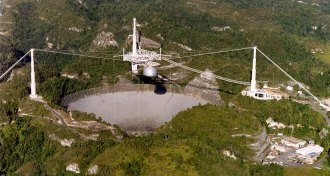 Astronomy
AstronomyRepeating fast radio bursts recorded for the first time
Until now, ephemeral blasts of radio waves from other galaxies have never repeated; this one erupted 10 times last year.
-
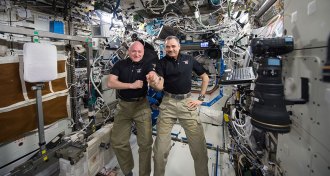 Astronomy
AstronomyAstronauts set to return to Earth after nearly a year in space
Scott Kelly and Mikhail Kornienko are scheduled to return Earth on Tuesday after a record-setting 340 days in space.
-
 Planetary Science
Planetary ScienceCharon’s surface cracked when ancient subsurface sea froze
A subsurface ocean on Charon, Pluto’s largest moon, might have once frozen and cracked the moon’s surface, creating some of the ridges and valleys seen today.
-
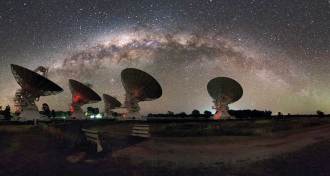 Astronomy
AstronomyFast radio burst tracked to its galaxy of origin
After years of searching, astronomers finally track an elusive cosmic radio signal to its home: a galaxy about 6 billion light-years away.
-
 Cosmology
CosmologyCelebrating a new way to listen to the universe
Editor in Chief Eva Emerson reflects on the detection of gravitational waves as a historic moment for physics.
By Eva Emerson -
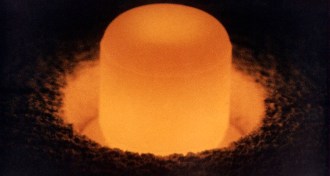 Chemistry
ChemistryAfter 75 years, plutonium is still NASA’s fuel of choice
On the 75th anniversary of the discovery of plutonium, the radioactive element is still not a major source of fuel for nuclear power plants in the United States.
-
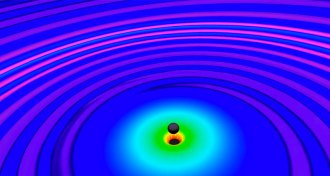 Astronomy
AstronomyBlack hole heavyweights triggered gravity wave event
Those gravity waves came from two black holes more massive than any known outside a galactic core and formed in an environment different than the Milky Way.
-
 Planetary Science
Planetary Science120 seconds in Pluto’s shadow
A 747 outfitted with a telescope worked with New Horizons to reveal details about Pluto’s atmosphere.
-
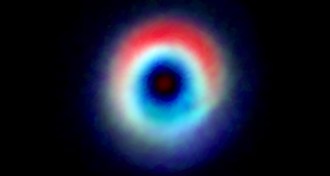 Astronomy
AstronomyPlanets may emerge from stellar duo gathering icy dust
Gas freezing onto dust grains around a binary star could be setting up a site where comets or even planets might someday form.